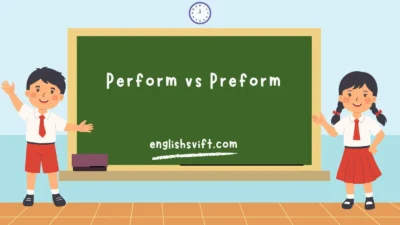Language is constantly evolving, and slang terms like “gooned” reveal just how colorful, raw, and layered our culture has become. While at first glance this word might sound funny or even nonsensical, its meaning carries weight in different contexts—from historical street slang to adult internet subcultures, and even sports talk.
In this guide, we’ll unpack the full story behind “gooned,” its origin, nuanced meanings, real-life examples, and how it has shifted from the 1830s to the digital age of 2025.
Whether you’ve seen it in a meme, heard it in a hockey locker room, or read it in online forums, this article will give you the full picture—with practical examples, cultural insights, and even tables to make complex concepts easy to understand.
What Does “Gooned” Mean in Modern English?
The slang term “gooned” is a past participle of “goon,” which historically described a thug, simpleton, or bodyguard hired to intimidate opponents. Today, its meaning is context-dependent, often tied to intense states, whether emotional, physical, or mental.
| Context | Meaning of “Gooned” | Example Sentence |
| Slang (General) | Extremely drunk, intoxicated, or high | “He was totally gooned after the party.” |
| Subcultural (Adult Content) | Being in a trance-like, overstimulated state from pornography or self-pleasure | “He gooned for hours, lost in the moment.” |
| Sports Slang | Worn out or physically wrecked after intense activity | “The players were completely gooned after overtime.” |
| Insult | Foolish, clumsy, or unintelligent | “Don’t act so gooned; pay attention!” |
| Old-School Usage | A hired thug or guard acting aggressively | “The mob sent gooned enforcers.” |
The word has transformed from a simple insult into a multifaceted term that reflects shifts in internet culture, taboo discussions, and slang evolution.
The Origins and Etymology of the Word “Goon”
The earliest recorded use of “goon” dates back to the 1830s, meaning a “simpleton” or “fool.” By 1921, it became popular as a term for thugs or hired guards, especially during labor strikes in the U.S. and UK. Later, in 1951, the iconic British comedy show The Goon Show brought humor and absurdity to the word.
| Year | Usage Shift |
| 1830s | “Goon” meant a fool or simpleton |
| 1921 | Used to describe strikebreakers or hired enforcers |
| 1951 | Popularized by The Goon Show in Britain |
| 1960 | Adopted into American slang for bumbling thugs |
| 2022+ | Gained internet subculture meanings (sexual contexts) |
How “Gooned” Evolved Across History (1830s–2024)
The term has morphed across time, reflecting society’s changing attitudes toward taboo subjects, media, and humor.
- Industrial Era: “Goon” meant unintelligent or brutish workers.
- Labor Movements: The term carried a dark edge as “goons” terrorized unions.
- Pop Culture Explosion: The Goon Show made “goon” a household word, removing some of its menace.
- Digital Age: By 2020, “gooned” gained popularity in adult content spaces, referring to trance-like states of arousal.
- 2024 Slang Evolution: It’s now part of online meme culture and casual speech.
Gooned vs. Gooner vs. Gooning: Understanding Related Terms
Slang often breeds a family of related terms. Here’s a breakdown:
| Term | Definition | Example |
| Gooned | Past tense; intoxicated, aroused, or exhausted | “He was totally gooned by midnight.” |
| Gooner | Someone who engages heavily in porn-related “gooning” sessions | “He identifies as a gooner.” |
| Gooning | Entering a prolonged state of stimulation or fixation | “He spent hours gooning.” |
| Goon | A thug, fool, or hired enforcer | “The mob hired goons.” |
Slang vs. Formal Usage: Where “Gooned” Fits in Language
“Gooned” rarely appears in academic writing, literature, or formal speech. Instead, it thrives in:
- Internet subcultures
- Sports locker room banter
- Adult entertainment discussions
- Satirical or comedic storytelling
Its informality makes it an interesting word for linguists, as it shows how slang adapts to new societal contexts.
Gooned in Pop Culture: Media, Movies, and Internet Memes
“Goon” characters—thugs, fools, or bumbling sidekicks—have appeared in:
- Comics: Popeye’s villain “Alice the Goon” (1933)
- Film: Hockey comedy Goon (2011) starring Seann William Scott
- Memes: “Gooned out” memes on Reddit, Twitter, and Discord
- Music: Hip-hop artists often use “goon” as a badge of toughness
How “Gooned” Reflects Societal Changes and Subcultures
The rise of “gooned” demonstrates:
- Normalization of taboo conversations about sex and addiction
- Growth of niche online communities like Reddit’s r/gooning
- Influence of pornography and virtual media on slang
- Youth culture’s tendency to redefine edgy terms
Psychological and Behavioral Connotations of Being Gooned
Psychologists note that “gooning” states resemble:
- Trance-like arousal or hypnotic focus
- Addictive patterns tied to dopamine release
- Isolation and escapism in online culture
Gooned in Sports, Fitness, and Athletic Communities
In hockey and boxing slang, a “goon” is an enforcer—a tough player whose job is to intimidate. “Gooned” in this context means:
- Exhausted or battered
- Physically dominant after a fight
- Used as a compliment among teammates
The Role of Addiction and Pleasure-Seeking in Gooning Culture
This slang highlights pleasure-seeking behavior in:
- Porn consumption
- Substance abuse
- Video gaming
- Extreme sports
| Behavior | Connection to Gooning |
| Pornography | Root origin of the modern sexual meaning |
| Alcohol/Drugs | Gooned = intoxicated |
| Gaming & Streaming | Hours-long immersion sessions, “gooned out” players |
| Extreme Sports | Exhaustion after thrill-seeking |
Common Idioms, Phrases, and Expressions Related to Gooned
- “Totally gooned” – Extremely high or exhausted
- “Gooned out of his mind” – Mentally gone or distracted
- “A goon squad” – A group of thugs or hired enforcers
- “Goon-faced” – Silly or foolish expression
A Grammar Guide to Using “Gooned” in Sentences
| Tense | Example Sentence |
| Present Simple | “He gets gooned after every big match.” |
| Past Simple | “They gooned him with a prank.” |
| Present Continuous | “She’s gooning all night.” |
| Future | “You’ll be gooned if you drink that.” |
Synonyms, Antonyms, and Related Vocabulary for “Gooned”
| Synonyms | Antonyms |
| Drunk, intoxicated, wasted | Sober, alert, sharp |
| Hypnotized, entranced | Awake, focused |
| Foolish, silly, numbskull | Intelligent, bright |
| Thuggish, brutish | Polished, refined |
Examples of “Gooned” in Conversations, Literature, and Media
- “Bro, I’m so gooned right now I can’t even focus.”
- “In the book, the villain hired a team of gooned thugs.”
- “After six hours gaming, I was completely gooned.”
Regional Differences: British vs. American Interpretations
| Region | Interpretation of “Gooned” |
| British | Strong association with The Goon Show humor |
| American | Thug, fool, or intoxicated person |
| Australian | Slang for being drunk or “wrecked” |
How the Internet and Social Media Made “Gooned” Viral
Platforms like Reddit, Twitter, TikTok, and adult forums amplified “gooned,” turning a fringe word into mainstream slang.
The Psychology of Stimulation and Trance-like States
Psychologists liken gooning to:
- Meditation gone extreme
- Prolonged dopamine feedback loops
- Behavioral conditioning
Ethical Debates Around the Term “Gooned”
Some critics argue it normalizes:
- Porn addiction
- Extreme intoxication
- Anti-social behavior
Others see it as harmless slang reflecting cultural change.
How to Use “Gooned” Respectfully and Responsibly
- Avoid mocking addiction
- Respect community boundaries
- Use context-appropriate language
A Timeline of Gooned in Language and Culture
| Year | Cultural Shift |
| 1830s | Foolish person |
| 1921 | Strikebreaker/thug |
| 1951 | Comedy icon via The Goon Show |
| 2010s | Internet meme slang |
| 2022+ | Explicit adult context popularity |
Expert Opinions and Linguistic Insights on Gooned
Linguists note “gooned” is a perfect example of semantic drift—a word evolving dramatically while holding on to its “outsider” vibe.
The Role of Pornography and Explicit Media in Gooning
Modern meaning is deeply tied to porn subcultures, where “gooning” refers to trance-like states of arousal fueled by overstimulation.
Therapy, Recovery, and Healthy Boundaries for Gooners
- Therapy programs help with porn addiction.
- Setting screen-time limits can prevent over-gooning.
- Healthy hobbies and community support aid recovery.
Why Understanding Slang Like “Gooned” Matters in 2025
Slang is cultural history in motion. Understanding words like “gooned” builds:
- Better communication
- Cultural awareness
- Respect for linguistic diversity
Quick Reference Table: Gooned Definitions, Contexts, and Examples
| Context | Definition | Example |
| Slang | Intoxicated | “He was gooned last night.” |
| Subculture | Trance-like porn fixation | “He gooned for hours.” |
| Sports | Wrecked after a tough match | “Players were gooned.” |
| Insult | Foolish, clumsy | “Stop acting so gooned.” |
| Historical | Mob enforcer or thug | “They hired gooned guards.” |
FAQs
What does “gooned” mean today?
It can mean intoxicated, trance-like from porn, exhausted, or simply foolish, depending on context.
Is “gooning” a harmful behavior?
It can be if tied to addiction, but for many, it’s just slang for being deeply immersed in something.
Where did “goon” originate?
It dates back to the 1830s, initially meaning “fool,” later associated with thugs and enforcers.
Why has “gooned” become popular?
Social media, memes, and adult content forums have made it part of online slang culture.
Can “gooned” be used casually?
Yes, but context matters—especially around sensitive subcultural meanings.
Conclusion
The word “gooned” is a fascinating linguistic artifact—spanning centuries of slang, from insults in the 1830s to modern internet subculture fame. It reflects society’s changing attitudes toward taboo topics, humor, and addiction. Whether you hear it in a sports bar, read it online, or see it in adult contexts, knowing its nuanced meanings and history helps you use it with confidence and cultural sensitivity.



